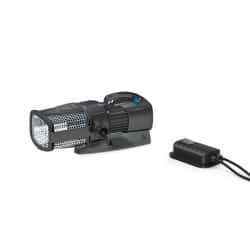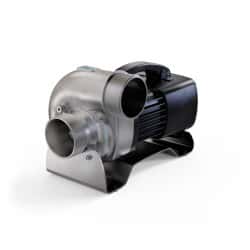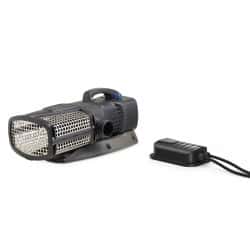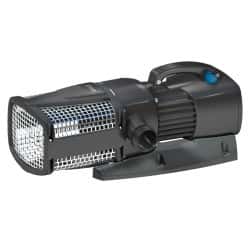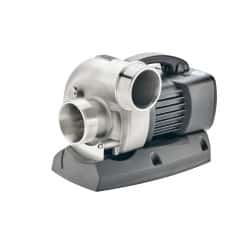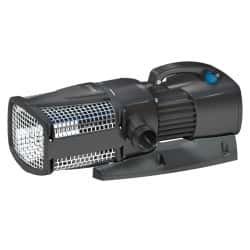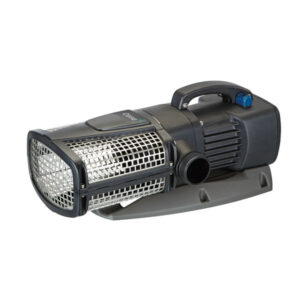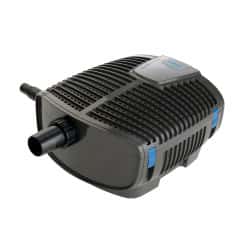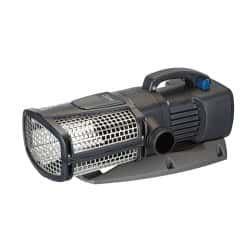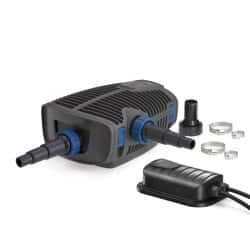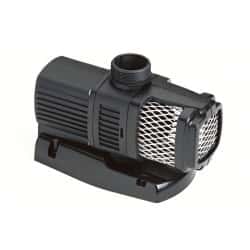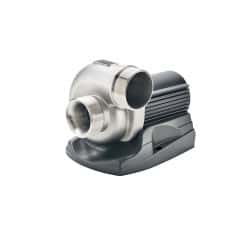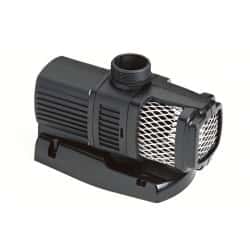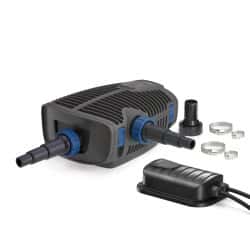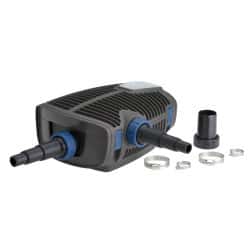Welcome to Riverwood Aquatics
Pumps are the heart of any pond, circulating water to ensure a healthy and vibrant aquatic ecosystem. They play a crucial role in oxygenation, filtration, and the overall maintenance of water quality, which makes them indispensable for pond owners. From small garden ponds to large pools, the right pump can make all the difference in creating a thriving environment for fish, plants, and other aquatic life.
show more
About Our Pumps for Ponds
Our pumps for ponds come in various sizes and types, and each has been designed to meet specific needs and applications. Whether you’re looking to create a serene pool with a gentle water flow or a dynamic landscape with waterfalls and fountains, there’s a pond pump tailored to your project. Understanding the different types of pumps and their intended uses is key to selecting the right one for your pond.
Types of Pond Pumps
Shopping for pumps for ponds will see you take your pick from the following:
Submersible Pumps: Designed to operate underwater, these pumps are ideal for smaller ponds and water features where noise reduction is crucial.
External Pumps: Positioned outside the pond, external pumps are more powerful and efficient, suitable for larger ponds and more complex filtration systems.
Solar-Powered Pumps: An eco-friendly option, solar pumps rely on sunlight to operate, making them ideal for small to medium ponds in sunny locations.
Fountain Pumps: Specifically designed to power water features, fountain pumps add visual and auditory appeal to your pond.
Not sure which is right for your pond? Dont worry, were here to help! Just tell us about your pond and the vision you have for it, and we will be able to point you in the direction of the perfect pump for you.
Talk to Us Today
To find out more about our pumps for ponds, delivery, and experience meeting the needs of customers just like you, please get in touch with us today. Wed love to answer any questions that you have and will be able to give you all the information you need to make a purchase with total confidence.
Frequently Asked Questions (FAQs)
Regular maintenance is key to ensuring the longevity of your pond pump. Start by following the manufacturer’s instructions for cleaning and maintenance. Generally, you should regularly inspect the pump for debris and clean the intake screen to prevent clogging. Submersible pumps may require more frequent cleaning due to their direct exposure to pond sediment. During winter, if your pond is subject to freezing, it’s advisable to remove the pump and store it in a frost-free location to prevent damage.
Additionally, periodically check the electrical connections and cables for wear and tear. Proper maintenance not only extends the life of your pump but also maintains its efficiency and reliability.
Solar-powered pond pumps are an excellent option for environmentally conscious pond owners and those looking to reduce electricity usage. They are most effective in small to medium-sized ponds located in areas that receive ample sunlight throughout the day. While solar pumps can power a variety of water features and provide adequate circulation for smaller ponds, their performance is directly tied to sunlight availability. This means they may not be suitable for ponds requiring constant, high-volume water circulation or those located in shaded areas.
Before choosing a solar-powered pump, consider your pond’s size, location, and the specific needs of your aquatic ecosystem to determine if a solar pump can meet your requirements effectively. We will be able to provide you with advice on this.
Selecting the right size pump for your pond is essential for maintaining water quality and clarity. A general rule is to choose a pump that can circulate the entire volume of your pond at least once every two hours. For example, a 1,000-gallon pond requires a pump rated for at least 500 gallons per hour (GPH).
However, if you have water features like waterfalls or fountains, you may need a pump with a higher GPH rating to accommodate the additional water movement and lift required. Consider the size of your pond, the type of filtration system you have, and any water features when selecting your pump to ensure it meets the needs of your aquatic ecosystem.
show less
-
Filtration for Ponds, Oase, Oase Pond Filtration, Oase Pond Water Pumps, Water Pumps
Oase AquaMax Eco Expert 27000 / 12 V EGC
£2,660.99On Backorder
-
Filtration for Ponds, Oase, Oase Pond Filtration, Oase Pond Water Pumps, Water Pumps
Oase AquaMax Eco Titanium 81000
£2,574.99On Backorder
-
Filtration for Ponds, Oase, Oase Pond Filtration, Oase Pond Water Pumps, Water Pumps
Oase AquaMax Eco Expert 20000 12V EGC
£2,417.99On Backorder
-
Filtration for Ponds, Oase, Oase Pond Filtration, Oase Pond Water Pumps, Water Pumps
Oase AquaMax Eco Expert 44000
£2,099.99On Backorder
-
Filtration for Ponds, Oase, Oase Pond Filtration, Oase Pond Water Pumps, Water Pumps
Oase AquaMax Eco Titanium 51000
£1,819.99On Backorder
-
Filtration for Ponds, Oase, Oase Pond Filtration, Oase Pond Water Pumps, Water Pumps
Oase AquaMax Eco Expert 36000
£1,819.99On Backorder
-
Filtration for Ponds, Oase, Oase Pond Filtration, Oase Pond Water Pumps, Water Pumps
Oase AquaMax Eco Expert 26000
£1,399.99On Backorder
-
Filtration for Ponds, Oase, Oase Pond Filtration, Oase Pond Water Pumps, Water Pumps
Oase AquaMax Eco Twin 30000
£1,284.99On Backorder
-
Filtration for Ponds, Oase, Oase Pond Filtration, Oase Pond Water Pumps, Water Pumps
Oase AquaMax Eco Expert 21000
£1,269.99On Backorder
-
Filtration for Ponds, Oase, Oase Pond Filtration, Oase Pond Water Pumps, Water Pumps
Oase AquaMax Eco Premium 12000 / 12 V
£1,232.99On Backorder
-
Filtration for Ponds, Oase, Oase Pond Filtration, Oase Pond Water Pumps, Water Pumps
Oase AquaMax Gravity Eco 20000
£1,188.99On Backorder
-
Filtration for Ponds, Oase, Oase Pond Filtration, Oase Pond Water Pumps, Water Pumps
Oase AquaMax Eco Titanium 31000
£979.99On Backorder
-
Filtration for Ponds, Oase, Oase Pond Filtration, Oase Pond Water Pumps, Water Pumps
Oase AquaMax Gravity Eco 15000
£967.99On Backorder
-
Filtration for Ponds, Oase, Oase Pond Filtration, Oase Pond Water Pumps, Water Pumps
Oase AquaMax Eco Premium 6000 / 12 V
£965.99On Backorder
-
Filtration for Ponds, Oase, Oase Pond Filtration, Oase Pond Water Pumps, Water Pumps
Oase AquaMax Eco Premium 20000
£839.99On Backorder

